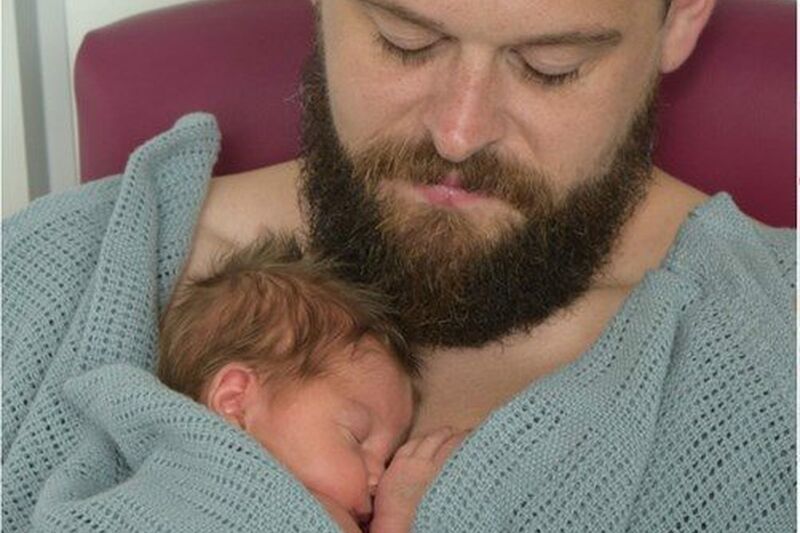Sheelagh Ahern, Senior Staff Nurse, and Jane Striton, Advanced Neonatal Nurse Practitioner (ANNP) have been working tirelessly, alongside their multi-disciplinary team, to make positive changes to help improve areas such as breastfeeding and parental access on the unit.
These changes have included creating a more comfortable and welcoming unit space to encourage parents to be present on the unit and supporting parents to become confident feeders and carers for their baby. The unit have achieved this by facilitating:
Privacy
The Bliss Baby Charter highlights the importance of privacy and the difficulties some mothers face in bonding with their baby and expressing in a public space. To address this issue the unit applied and were successful in obtaining a Bliss Baby Charter grant to purchase privacy screens.
Sheelagh highlights the benefits of these privacy screens, “They are adaptable to individual rooms and situations. They maximise privacy around the cot spaces ensuring privacy and dignity are maintained during care times.
The screens are also handy when siblings and other family and friends visit. They provide much needed private time for quality moments.”
Parent feedback on the screens shows that they especially appreciate the screens at quiet times when they have their baby out for skin-to-skin.
Breastfeeding
The Bliss Baby Charter helped the unit recognise that the frequency of mothers expressing was affected by a shortage of breast pumps on the unit. As a result, the unit improved mothers’ access to adequate and effective expressing equipment by using the grant fund to purchase easy to use breast pumps. Mums are now able to express at the cot side.
Sheelagh recognises the benefits of introducing these additional pumps, “It’s definitely evident from our audit that breastfeeding rates have increased. We have also seen an increase in mums who may have not considered breastfeeding giving expressed breast milk in the first few days.”
Parental confidence and participation
The unit team realised that to facilitate high quality family-centred care, they had to enable parents to become more confident primary carers. As a result, they looked to find ways to better support parents to develop their skills and knowledge in carrying out daily cares.
Portable DVD players and headphones were purchased to enable parents to watch educational DVDs such as Bliss' ‘What to do if your baby stops breathing’. The unit also provides regular teaching sessions and offers parents the space to discuss and participate in daily cares.
Crucially, the unit provides truly unrestricted access to parents, ensuring that they can be present on and contribute to ward rounds. This allows parents to feel part of their baby’s care team and also provides undisturbed skin-to-skin and bonding opportunities throughout their stay on the unit.
Northumbria also provide DVDs and headphones for siblings. This allows them to be kept occupied at cot side while parents give cares. Sheelagh reflects that, “This has been great as it allows parents and siblings to stay close to their baby throughout their stay.”
Summary
Northumbria’s dedication to supporting and empowering parents to breastfeed and provide daily cares and skin to skin are great examples of high quality family-centred care. Bliss recognises that clinical and family-centred care most work hand in hand in order to provide the best outcomes for the baby.
By creating an environment that allows parents to be active partners in their baby’s care, Northumbria are well on their way to creating an excellent family-centred neonatal unit with the baby firmly placed within the context of the family.
